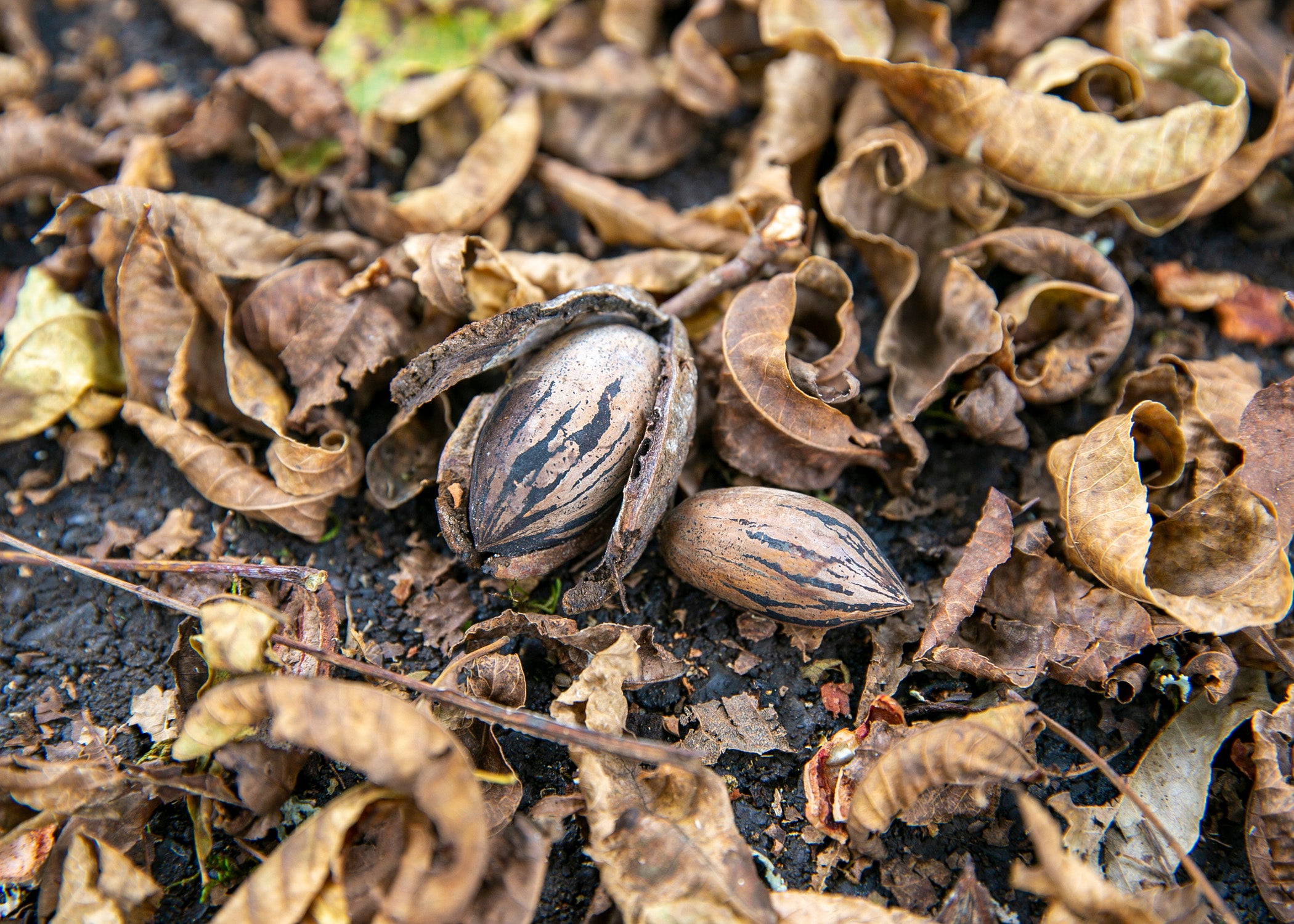Pecans slightly behind schedule but promising
Published 3:23 pm Tuesday, November 16, 2021

- Harvest is slightly behind schedule for Mississippi’s pecan crop due to a cold, wet spring and early summer, but quality and yield are looking good so far in much of the state. (Photo by MSU Extension Service/Michaela Parker)
By Nathan Gregory
MSU Extension Service
STARKVILLE, Miss. – Harvest is slightly behind schedule for Mississippi’s pecan crop due to a cold, wet spring and early summer, but quality and yield are looking good so far in much of the state.
One exception is in the state’s southeast quadrant, which was battered by Hurricane Ida in late August.
“Wind damage caused broken branches, downed trees, loss of leaves, increased disease pressure and overall increase in tree stress,” said Eric Stafne, fruit and nut specialist with the Mississippi State University Extension Service. “I am seeing trees re-leaf now in south Mississippi, where most of the crop is closer to poor condition. We also had tremendous rainfall in the spring and early summer that led to high disease amounts, especially pecan scab.”
Max Draughn, president of the Mississippi Pecan Growers Association, acknowledged a heavy year for scab, a fungal disease that develops in rainy conditions from shucks, leaf petioles and stems infected the previous season. It is characterized by spots on the leaves, which then infect shucks and eventually lead to nuts to shedding from the pecan trees.
“Rains have been timely for most of the year, so quality of pecans should be excellent,” Draughn said. “Even though it has been a heavy year for scab, most managed orchards have been able to adequately address the situation.”
The American Pecan Council reports that Mississippi has 823 pecan orchards on a total of 8,400 acres. Since 2018, the state has the second most pecan acreage added by percentage of the pecan-producing states, and it ranks ninth in annual production nationally.
However, as more new orchards begin producing, Mississippi will move up rapidly on production, Draughn said.
“Mississippi has had a nice increase in the number of orchards planted in the state in the last few years,” he said. “Many of our orchards are now being managed to increase the quality of the nuts being produced.”
Older orchards in the state primarily grow the Stuart, Mahan and Desirable pecan varieties. Newer orchards are branching out and growing the Creek, Elliott, Excel, Gafford, Jackson and Pawnee varieties.
“There is a move toward more low-input pecan varieties that can be grown with much less spraying for disease and pesticide application,” Draughn said. “This also reduces cost of production.”
Wholesale market prices are rebounding from last year’s low prices due to COVID-19. Cold storage inventories have been depleted since this time last year. Heading into the fall of 2020, cold storage had approximately double what would be in inventory in a normal year.
The retail range on prices per pound for shelled pecan halves is $13 to $16.
“Prices are still somewhat depressed due to tariff disputes between the U.S. and China, but interest from buyers in China is strong for this early in the season,” Draughn said. “Retail prices should remain close to last year’s. Average wholesale prices are hard to judge due to the wide range of quality and size that are the main drivers of price.”
For MSU Extension Service publications about Mississippi-grown pecans, visit http://extension.msstate.edu/c



